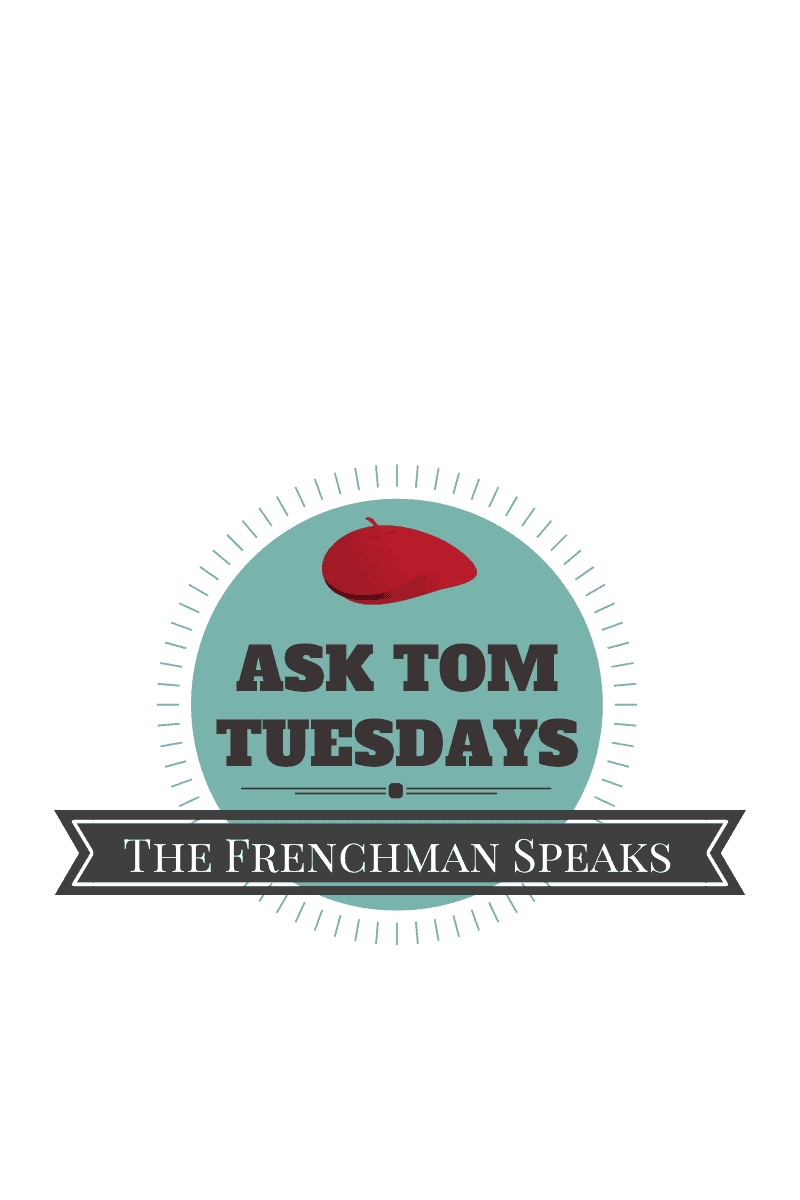Upon visiting France, you’ll most definitely notice the social politeness everywhere you go and the importance of French manners. Daily interactions are bookended with chipper bonjours and au revoirs, and even still, hearing the now-familiar words makes me smile. Interactions always start off with a friendly bonjour or bonjour, madame/monsieur. The French greet others in doctors’ waiting rooms, upon entering small shops, and pretty much any time we interact with another human being directly in any way. It goes well beyond social habits and good etiquette.
French manners: My favorite social norm

Photo credit: Shutterstock.com / Minerva Studio
Sometimes I feel like in the USA we get so caught up with what’s in our head that manners are the first thing to go out the window when we’re rushing around and come face to face with another person.
But in France, there’s one part of French manners that is always respected and it goes beyond simply being polite. This social norm in France is simple: You greet people each and every time before saying anything else. This is the case for social interactions, in professional settings, and with those in a service role.
The magic word in France really is bonjour (or bonsoir in the evening). It’s part of French manners and saying it to start off any interaction is just what you do. Kids are taught this from a young age, and if they forget the magic word, they’re quickly corrected by their parents. It’s part of being bien éduqué.
Are the polite French greetings genuine or are they something we do only because it’s expected? Maybe both. Regardless, the social niceties are obligatory. If you walk up to someone in a service capacity without saying bonjour first before launching into your question or request, it’s not only rude but it shows you’re lacking in basic class and French know-how.
3 Important things tourists forget >>
Even if this French social norm is a basic formality, it feels good to be acknowledged. A simple bonjour, merci, or bonne journée and au revoir feels so normal now before and after every interaction and the words roll off my tongue so naturally I don’t even realize I’m saying them.
It doesn’t matter if it’s in our professional or personal life, with someone older or younger, someone we know well or a complete stranger, or with someone who can help us in some way or not. Everyone is acknowledged with the same words that in effect say, “I see you and I’m starting this interaction off on the right foot.”
It’s not just about having good manners in France. It’s about acknowledging another human being.
It caught me by surprise the first couple of times a homeless person asked me for money on the street in my French town. He said bonjour, asked for money and when I said sorry I didn’t have my wallet, he wished me a bonne journée.
I did a double take and thought he was messing with me. He wasn’t. He was polite yet sincere. I can’t say I’ve ever had the same interaction in NYC…

Photo credit: Shutterstock.com / Yulia Grigoryeva
Although polite, these social niceties aren’t an invitation to deep dive into a personal conversation nor are they a come-on. They are what they are — an obligatory part of how you communicate in France. It’s something you say and a bonjour/au revoir is expected at a bare minimum and delving into small talk is a matter of discretion.
These days, when back in the USA observing non-French people, it is almost jarring for me to see how some Americans address each other. We don’t always say hello before ordering at a restaurant or asking a store employee a question. We most certainly don’t always say thank you and goodbye.
And how many times have you seen customers wish employees a good day? Yeah, it happens but it’s not as common in the USA as it is in France. Now, it’s my home culture that surprises me.
It goes without saying that of course not everyone in the USA is rude, short, or forgets polite greetings — I’m not saying that at all. Many Americans were raised to be super polite and do always address others politely.
But the difference is that in the USA, it’s not a social norm across the board to say hello, thank you, and goodbye. Every time. You can get away with less.
While it’s not the most polite thing, in the USA it’s more accepted to be less polite in social interactions and just say to a waiter, “I’ll have the steak.” Or “I’ll have the steak. Thanks” instead of “Hello, I’ll have the steak please. Thank you,” like you’d hear in France. The two cultures approach social interactions differently and one isn’t inherently better or worse.
Personally speaking, the French way seems more human, civilized, and kind. It feels good to notice people and be noticed by a couple of simple words before getting transactional. It feels good to have a base line of social decorum that is adhered to pretty much by everyone, everywhere — no matter the geography or how you were raised, good French manners or not.
When you’re not paying attention, the Frenchness makes its way into the core of your being and I love it. After about a year in France, the French way became second nature to me and I don’t even think about what greetings to use now… so much so that at a Target in Florida a couple of years back, out of habit I said bonjour to the cashier. Ooops.
***
What French habits and mannerisms have you noticed? Have you picked up any French manners or etiquette?
PIN IT:






Bonjour et merci. Another lovely post and so true. When I am in France, I do appreciate the greetings.
A little more politeness and recognition would go a long way everywhere.
Bonne journée,
Terri
Couldn’t agree with you more, Terri, about the politeness going a long way everywhere. While it’s not the norm across the board in the USA, I don’t think anyone would blink if we were all more polite. Like always saying hello, thank you, and goodbye wouldn’t come across as strange and many people are polite. We just have a middle ground that’s accepted.
Bonjour (bonsoir), Au revoir, Merci, … are my #1 recommendations to people visiting me in Paris. Say it always. But, as you say, it is not an invitation into small talk.
Hi Mark, yes so important to nail the proper greeting. Even if foreigners butcher the pronunciation, it’s so much better to just say it however you can than to avoid a greeting. It’s the only way to start off an interaction.
A social norm that other countries aspire to
Hi Jo-Anne! How is it in Australia? Are people generally polite with their greetings?
Bonjour Diane,
I feel the exact same as y ou about the French niceties and greetings.
Whenever I go back to Quebec to see my family, I find it jarring at the lack of polite greetings. Everyone says Merci but not bonjour. I never noticed it before moving to France.
Thanks for reading, Annie! That’s interesting that in Quebec they default to the less polite way despite the fact that they’re speaking French.
As a French, this is one of the things that kind of surprised me when I first went to the USA. When I was working as a teacher trainee at a school, I was shocked by the fact that the students would come in my classroom without saying hello.
In France, it’s the norm in school to say hello to your teacher, and most teachers will stand at the door and greet every student personally.
That was not the case in the American middle school I taught at, and, since it was a French immersion class, I decided to start greeting my students at the door and make them look at me and say Bonjour when they came in.
Now that I teach English in France, whenever my students come up to me in hallways to ask me something or tell me something, most of them start right off with “alors en fait” or “par contre” (that one cracks me up). The first thing I do is interrupt them with a jovial “Hello! :)” and then they have to ask their question again.
Hi Morgane! Yes, it’s such a noticeable difference in how we approach others socially. I like how you were able to teach French greeting norms in your French immersion class. I bet your students did it automatically after and maybe it even carried over to their English language interactions.
One question though, in your last paragraph you mention French kids just coming up to you and starting with alors en fait. Do you find the lack of a proper greeting from French kids is becoming more common? I read that part twice because at first I thought you meant foreign kids weren’t greeting you.
Thanks for reading!
Hi! 😉
Another politness we have in France and which is lacking not only to Americans but a lot of nationalities (I do work with a lot of people from all around the word, and as a French person, i noticed that a lot), it is not to say please when asking a favor. In French we either say please (pass me the salt please) or we ask permission (can you pass me the salt?) Or even better both at the same time (can you please pass me the salt). In French, it seems very unpolite to just say what we need (pass me the salt). It sounds that someone is giving order and we don’t like that. This is another thing we taught children very young. They all know what is the magic word to get what they ask for.
Oh yeah, “s’il te/vous plait” is definitely our magic word, as you said, and it’s considered super rude not to use them. Like when kids forget to say please, we pretend not to understand what they’re saying until they realize their mistake and rephrase with an added stp after their request 🙂
I appreciate you bringing attention to this cultural difference regarding the etiquette of acknowledging staff members in French businesses. It is true that in some cultures, such as France, it is customary and polite to respond in kind to a greeting from salespeople or staff. Conversely, in the United States, it is common for individuals to avoid making eye contact or engaging in small talk in fear of being pressured into making a purchase. As global citizens, it is essential to be aware of and respect these cultural differences to facilitate positive interactions and experiences when traveling abroad. Thank you for sharing your insights and shedding light on this crucial aspect of cross-cultural communication.
Hello,
I’m sorry but it is actually not true. As a frenchman I am always disappointed by the manners of people around me : no “bonjour”, no “merci”, nothing it’s really annoying. I get pushed around all the time in the street or the public transportations because people would rather hit you in the side than asking you politely to move away. And I’m sorry again but one of the main reason for this change is foreign tourists invading the street.
Secondly the magic word is “merci” not “bonjour”.
Best regards